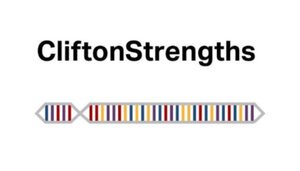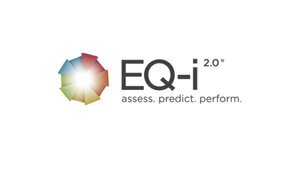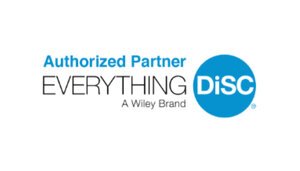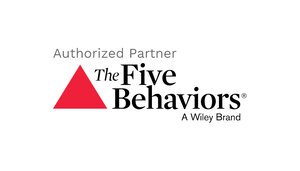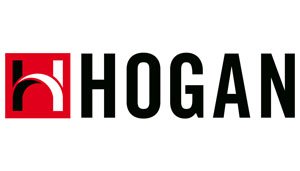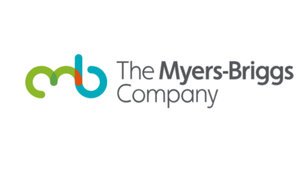
Leadership Coaching
Our clients often tell us their most valuable asset is their people. As with any asset, you want it to grow and appreciate. Leadership coaching does just that – it is a proven way to maximize the potential and contribution of your people.
Research conducted in 2016 found that an under-prepared leader can cost an organization as much as $125,000 each year because of low productivity, low morale, missed opportunities, and turnover. An under-prepared leader is not necessarily due to a lack of effort or concern – even smart, capable, and high achieving people lose confidence and direction at times.
In another study conducted by the Society for Human Resources Management (SHRM) in 2022, research showed that despite financial challenges, most organizations continue to fund professional training and development, including executive and leadership coaching.
How Does Leadership Coaching Help?
Partnering with an experienced leadership coach offers you a confidential sounding board, a thought partner, someone to challenge assumptions while providing an empathetic ear. Our coaches know a lot because they experienced a lot, and many are likely to have faced and overcome the same challenges you're facing.
Our coaches work with you to develop your skills and shift your mindset in a way that can translate into daily activities. Unlike general training, leadership coaching is customized to the specific issues a leader wants to work through and is a targeted way to achieve personal and professional objectives.
While every coaching engagement is different, below are some examples of what you can achieve through coaching:
Gain an understanding of your communication and management style and how to use it to maximize productive communication
Build credibility, confidence, and authenticity as a leader
Learn management techniques that support the performance of your team
Set goals, boundaries, and expectations with yourself and others
Improve focus, patience, and anxiety/stress management
Improve balance among self-awareness, assertiveness, and empathy
Leverage the highest and best use of your skills and talents
LEADERS BENEFIT:
A great leader benefits from coaching by gaining:
Increased self-awareness
Increased confidence
Increased resiliency
Higher tolerance for uncertainty and stress
Improved communication skills
And a great leader helps your team achieve:
Increased levels of trust
Engagement in productive conflict
Commitment to work
Accountability to each other
A focus on company goals instead of personal interests
COMPANIES BENEFIT:
Lower Turnover
Higher Morale
Team Focused Culture
Increased Productivity
Engaged Employees
Are you a good candidate for coaching?
Take this short assessment and find out! These questions will get you thinking about where your strengths lie and what areas of your leadership could benefit from coaching. A Loeb Leadership coach will follow up with you about your results. This is a no-obligation assessment!
What is Loeb Leadership’s Coaching Process?
Step 1: Intake and Assessment
Identify Objectives. We’ll sit down for a conversation with the you to determine the goals and objectives for a coaching engagement (either for yourself or for someone you are sponsoring in your organization) so we can set up the engagement for maximum success. Once we learn more about you and your goals, we recommend a few possible coaches for you to choose from, or offer you the opportunity to review our available coaches and their biographies on our coaching platform. We then set up a “fit call” with you and the coach to determine compatibility. Think of a fit call as an opportunity for both you and the coach to informally discuss a coaching engagement, get to know each other’s approach, background, and whether the partnership would be a fit for both parties.
Agree on Goals. After a Loeb Leadership coach and the person who will be coached (“coachee,” hereafter) are matched, they work together to understand shared expectations, coaching goals, and agreements. If necessary, our Loeb Leadership coach will meet with the coachee’s sponsor and/or manager for feedback or refinement on the established coaching goals.
Engaging with Loeb Leadership in a leadership coaching program typically involves a few key steps.
Assessments and Interviews: We then begin our information-gathering stage with the coachee that will inform the coaching planning and implementation:
We provide research-based assessments to gain insight into the coachee’s leadership style, communication preferences, emotional intelligence, personal values, and more, using assessments such as the Myers-Briggs Type Indicator (MBTI), DiSC, the Emotional Intelligence 2.0, Strengthsfinder, The Leadership Challenge, and many other tools we have access to. The coachee will also complete a pre-coaching questionnaire at the onset of the coaching engagement.
The Loeb Leadership coach will work with your organization to conduct a qualitative 360 interview process if deemed beneficial. During this process, the coach will interview 6-8 stakeholders to gather relevant leadership data about the coachee. The coach will then deliver the feedback and debrief with the coachee in the spirit of growth and development. All interviews are considered confidential, and the coach will maintain the anonymity of the people invited to provide feedback.
Step 2: Design the Coaching Plan
Define the Steps. The coach and coachee move from interpretations about data to pinpointing the specific skills and behaviors that will be enhanced or adjusted as part of the coaching engagement.
Build the Plan. The coach will help the coachee to build a practical development plan to build on the coachee’s strengths, and to develop any new habits that will provide a foundation for future success.
Inform and Adjust. The coach will orchestrate a meeting with the coachee and the coachee’s manager or sponsor to determine what level of involvement the manager/sponsor will have or need to be aware of in order to support the coachee through the coaching engagement and beyond.
Step 3: Implementation
Do the Work. The coach and coachee work together on the goals defined by the coaching development plan. Coaching sessions continue for the coachee to share how they are owning and practicing new behaviors and implementing the plan. Discussions center around what is working, what is not working, and what adjustments can be made. The coachee takes leadership of the purpose for each coaching session and how the coach can hold him/her accountable for the next session.
Mid-point Feedback. The coachee offers feedback to the coach. This gives the coach the opportunity to model “seeking feedback,” and the coachee to practice delivering feedback. This also provides the coach with valuable feedback on how to make any necessary revisions to the coaching engagement from the coachee’s perspective.
Step 4: Measuring Results
Assess Growth. The coach, coachee, and sponsors are interested in how the coaching investment can be measured. All parties assess progress towards the coaching goal, growth attained, and lessons learned by the coaching client.
Continued Support. Strategies for continued support and development and recommendations for the next steps are provided to the coaching client. In addition, a coaching post-assessment is given and compared to the pre-test from Step 1.

-
Leadership coaching is a process where a coach works one-on-one with a leader to develop their skills, enhance their performance, and achieve their goals. The coach helps the leader identify areas of improvement and develop strategies to achieve success. Leadership coaching can help individuals become more effective leaders, communicate more clearly, and build stronger relationships with their teams. It can also help individuals develop a more resilient mindset, improve their decision-making abilities, and learn to navigate challenging situations with greater ease. Partnering with an experienced leadership coach offers the leader a confidential sounding board, a thought partner, someone to challenge assumptions while providing an empathetic ear.
-
Leadership coaching is specifically focused on developing leadership skills, whereas other types of coaching may have a more general focus. Leadership coaching can help you develop specific skills that are crucial to success in a leadership role, such as strategic thinking, decision-making, and communication. During leadership coaching the coach will encourage the coachee to apply new leadership behaviors and communication skills to strengthen the coachee’s leadership capability, presence, confidence, and overall effectiveness, which in turn heightens the level of respect and trust people have in the coachee.
-
Leadership coaching can provide many benefits, such as increased self-awareness, improved communication skills, and enhanced confidence and leadership effectiveness. It can also help leaders to better understand their strengths and weaknesses, develop a growth mindset, and achieve their professional goals resulting in overall higher personal and professional well-being and productivity.
-
The duration of leadership coaching varies depending on the individual needs and goals of the leader. Typically, coaching sessions can range from several weeks to several months, with weekly or bi-weekly meetings customized to the schedule of the coachee.
-
A coaching session is fluid and structured to provide you with the time and space to respond to and reflect on powerful questions your coach asks you. Your coaching sessions are intended for you to share what is on your mind and what you might want to explore. During a coaching session, the coach and leader will typically discuss the leader's goals, challenges, and progress. The coach may ask questions to help the leader gain clarity, offer feedback and suggestions, and work with the leader to develop strategies for achieving their goals. Sometimes you may leave with homework or finish the session with a period of reflection. Throughout the coaching process, your coach will work with you to create a safe, supportive, and non-judgmental environment where you can explore your thoughts, feelings, and behaviors and work toward achieving your goal. Your coach will help you determine how you want to be held accountable for taking new actions.
-
There are several ways to find a leadership coach, such as through referrals, online searches, or professional organizations. It's important to take the time to research potential coaches and find someone who has experience working with individuals in similar situations to yours. Look for coaches who have strong credentials, experience working with individuals in your industry or profession, and positive reviews or testimonials from past clients. Loeb Leadership coaches hail from many different industries and positions, and all possess the experience and the understanding necessary to guide you toward your goals. We take out the guesswork by offering you a handful of coaches for you to choose from based on your goals and needs.
-
Yes, leadership coaching can be done remotely through video conferencing or phone calls. This allows for flexibility and convenience, especially for leaders who travel frequently or work remotely. Loeb Leadership offers a coaching platform to keep all resources and tools from coaching in one place.
-
Leadership coaching can help you improve your overall emotional well-being, which can positively impact your personal life. The skills you develop in coaching, such as communication and problem-solving, can also benefit your relationships and other areas of your life.
-
The value of leadership coaching can vary depending on the individual and their specific needs, but for many people, it can be an incredibly worthwhile investment in themselves and their careers. Leadership coaching offers a personalized, one-on-one experience that can help individuals identify their strengths and weaknesses, develop new skills and behaviors, and achieve their goals. A coach provides a confidential individualized space for you to receive and assess feedback while providing support. This helps individuals identify and overcome their specific challenges and holds them accountable for making meaningful progress toward their goals.
-
While coaching can be highly effective for many individuals, it's understandable to have concerns about whether coaching will work for you, especially if you feel like you’ve exhausted your options. It’s important to remember that coaching is a collaborative process that requires your commitment and active participation. If you're willing to engage fully in the coaching process, be open to feedback, and take action on the strategies and insights you gain from coaching, it's highly likely that you will experience positive change. It's also important to note that coaching is not a one-size-fits-all solution, and it may take time to find a coach that is the right fit for you. If you're not seeing the results you hoped for, it’s important to have an honest conversation with your coach about your concerns and explore other coaching options that may better suit your needs.
-
If you feel that your coach is not a good fit for you, it's important to address this issue as soon as possible. The relationship between a coach and a client is a critical component of coaching success, and it's important that you feel comfortable and supported in your coaching sessions. The first step is to talk to your coach about your concerns. Your coach is a trained professional who is committed to your success, and they may be able to make adjustments to the coaching process or their coaching style to better meet your needs. If you feel uncomfortable discussing your concerns with your coach, or if your coach is unable or unwilling to make changes to the coaching process, it may be necessary to consider finding a new coach who is a better fit for you.
-
It's understandable to feel overwhelmed with a busy schedule, but coaching can be an investment in your personal and professional growth that can ultimately save you time and increase your effectiveness. To prioritize coaching, consider setting aside specific times in your schedule for coaching sessions and treating them as you would any other important meeting. Additionally, you can work with your coach to find ways to maximize the impact of your coaching within the time you have available. Remember, coaching is a collaborative process, and your coach can work with you to develop a plan that is both effective and manageable given your schedule.
-
A skilled coach understands that personal and professional lives are often interconnected, and can help you identify how your personal life may be impacting your work life and vice versa. Through coaching, you can explore the personal challenges you're facing and develop strategies to help you navigate them effectively. It's important to remember that coaching sessions are confidential, and your coach will provide a safe and supportive space where you can discuss your personal challenges without fear of judgement.
-
Coaching can help change your mindset by increasing your self-awareness and helping you recognize and challenge limiting beliefs and patterns of thinking that may be holding you back. A skilled coach can work with you to develop a growth mindset, where you view challenges as opportunities for growth and are open to new perspectives and ways of thinking. Through coaching, you can develop more positive and empowering ways of thinking that will help you achieve your goals and reach your full potential.
-
It's natural to worry about reverting to old habits after coaching, but there are strategies you can use to help ensure that the changes you make during coaching are sustainable over time. One of the most important things you can do is to work with your coach to set clear and specific goals that are aligned with your values and vision for your future. You can also work on developing new habits and routines that support these goals and enlist accountability from others. Finally, it's important to remember that change is a process, and setbacks are a natural part of that process. If you do slip back into old habits, be compassionate with yourself and use the experience as an opportunity to learn and grow. Your coach can help you identify what went wrong and develop a plan for getting back on track.
Loeb Leadership Coaching FAQs
Why Partner With a Loeb Leadership Coach?
Loeb Leadership has offered coaching solutions since 1997. Our team of leadership coaches possesses hundreds of combined years of experience. Many of our coaches have held senior positions in your industry and draw from direct experience with the same or similar challenges of your leaders. We take the time to ensure the best fit between a leader and coach, and we’ve helped dozens of leaders achieve extraordinary results.
“Phenomenal feedback from [coachee] today. I had a check in call with him to assess his perceptions of working with you and the coaching process. He was all thumbs up and truly appreciates your knowledge and technique.”
“Having the pleasure of working with you at the start of my journey as CEO inspired a self-belief and confidence in my own ability that has undoubtedly added to the success that I (and we) have experienced over the last 3 years. Thank you.”
“I wanted to take a few minutes to really thank you for your guidance and invaluable feedback. Being able to brainstorm and share my thoughts and ideas with you and know that I am on the right track in my thinking and approaches with so many of the various challenges that have come my way these past six months has been amazing. It really has built my confidence to trust in my instincts again and has given me comfort to know that while I may be a lone wolf at times, I’m not completely off base. So thank you, thank you so much.”
“Thanks for all your great assistance with [coachee]. I know she really respected your guidance and I got the sense she really tried to absorb all she could from you. I am really pleased with the results and would recommend you highly.”

-
Client Background
Carla is the Office Administrator at a large professional services firm. She is a highly talented and experienced Human Resources leader with deep expertise in all facets of Human Resources. She is also the mother of three children: two teenagers and a pre-teen. Carla loves her job and is proud of her career growth, but lately feels stretched too thin and finds it hard to set boundaries. She feels most satisfied when producing results and being given bigger opportunities and responsibilities at her firm. Although she doesn’t “need” positive feedback on a regular basis, Carla appreciates being noticed for the deliverables she and her team meet and sometimes exceed.Carla’s boss, Harve, believes in Carla’s potential and would like to see Carla grow into an expanded and more senior role. He believes Carla can lead Practice Group Management, Attorney Onboarding, and Associate Training. Harve has received feedback from the executive leadership team that although Carla’s team produces, there is concern about her capacity to take on a larger role and her noticeable lack of executive presence. For Carla, being “stretched too thin” is showing up as curt responses to others, and what looks like a lack of strategy in nourishing relationships with senior leaders.
Loeb Leadership’s Coaching Process and Focus
Harve offered Carla the opportunity to work with one of Loeb Leadership’s executive coaches for six to nine months. Once Carla understood that a coaching engagement with Loeb Leadership was intended to support her skills and behavioral development to benefit her personal and professional growth, she was 100% committed to the Loeb Leadership coaching process.To begin, Carla’s coach asked her a series of questions that required her to reflect on her career successes and challenges, and complete a few research-based assessments. The assessment tools measured Carla’s self-awareness and emotional intelligence and her willingness to grow in these areas, and identified her personality and communication preferences.
Loeb Leadership Coaching Results
With guidance from her coach, Carla was able to process the results and feedback of her assessments. Carla discovered she likes to complete assignments efficiently, sometimes at the risk of overlooking opportunities to listen deeply to others or asking probing questions in a respectful way, resulting in others feeling unheard or unseen. Carla also learned that her drive for quick results was reflected in her non-verbal communication, and others were reading her serious facial expressions and minimal eye contact as a lack of empathy or personal interest in their work or success in their roles.Carla also shared with her coach that she was experiencing some personal demands that she felt she needed to prioritize as a working parent, and started to give herself permission to make her own wellness a priority.
Carla’s coach guided Carla through some intentional changes to her leadership behavior that completely changed the game. First, Carla decided to focus on her active listening skills, and to practice them with senior leaders as well as at home. In conversations, instead of listening to who was speaking to her, Carla would often get distracted about what she wanted to say next. Carla’s coach helped Carla focus on listening. She practiced actively focusing on and comprehending what her conversational partner was saying, and asking follow up questions when necessary. She also practiced her non-verbal communication by maintaining eye contact and smiling when appropriate, and demonstrated empathy more intentionally by acknowledging the emotions of others. She practiced not interrupting others when they were challenging her or presenting tough situations, and instead let them finish their points, allowing them to feel heard. All of this required self-regulation, a technique identified in her emotional intelligence assessment that she read and talked about with her Loeb Leadership coach.
Carla also chose to prioritize some “me” time. She found time to attend yoga classes twice a week. After her classes, Carla chose to listen to some of her favorite podcasts that inspired her and led to further innovative conversations with her team.
Over time, senior leaders noticed an increased confidence in Carla. In fact, they began to come to her as a sounding board. Some senior leaders told Harve how their trust in Carla rapidly grew, and they agreed that she seemed to “understand” them and the firm’s strategic vision. Everyone agreed that Carla’s coaching engagement with Loeb Leadership had made a huge impact, and they were eager for Carla to step into her next leadership role.
Carla took the role, and continues to add tremendous value to the firm. Carla continues to practice her active listening skills and makes her wellness a priority. Her smooth transition to her new role increased the firm’s ability to attract top talent, create the inclusive culture they aspire to, and have a leader on the senior leadership team that models the behaviors they expect of others.
-
Client Background
Matthew was a very successful Head of Sales for a technology company – he was handpicked by the CEO, who was proud of his highly talented and energetic new hire. Matthew was very intelligent and a risk taker. He seemed to require no sleep, prided himself on exceeding KPIs, and had experience leading teams for over 15 years. Unfortunately, Matthew’s immediate team of 8 people were exhausted. Although most of them had been excited to work for such a talented boss, they were finding the grueling hours, tremendously unrealistic expectations, and lack of feedback was causing them to head towards burnout. Matthew continued to brag about the results of his team as they reflected positively on his own personal success, but failed to give credit or acknowledgement to the individual members of his team or encourage their own career growth. His team’s morale tanked, and talent at the company began to resign. The CEO quickly noticed and thought a Loeb Leadership coach might help – even though Matthew’s ego wasn’t sure.
After contacting Loeb Leadership and learning about the Loeb Leadership coach matching process, the CEO was confident that Matthew could be matched with a Loeb Leadership coach who could help him maintain his high standards of performance for himself and others, while learning to lead with empathy and inspire his team members to increase their commitment and length of service to the company.
Loeb Leadership matched Matthew with a coach that was a straight shooter, just like Matthew. The coach “tested” Matthew’s understanding of leadership and challenged Matthew to describe his leadership philosophy. During this exercise, Matthew realized he didn’t have one. He expected that everyone on his team shared the same values and work style as he did. He saw all his team as high performers; just like him, so they must work in the same way.
Loeb Leadership Coaching Process and Focus
Matthew’s coach asked him to complete a work style assessment, which led to a discussion about different work styles. Matthew immediately noticed the other work styles of members of his team, and how some folks shared his work style while others didn’t. With this increased knowledge, Matthew started to realize that if others had different approaches to work, they also probably had different needs for feedback and mentoring. Matthew’s coach shared a variety of feedback models with Matthew and practiced having feedback conversations with him to prepare for having them with his team members.
Loeb Leadership Coaching Results
As Matthew’s confidence grew due to productive feedback conversations, his coach challenged him to insert some career development conversations into his individual conversations with his team. As Matthew started to do this, he noticed trust heightening between him and his team members. As his direct reports began to believe that Matthew had their best interests in mind and was willing to share his knowledge and expertise to help them be better performers, team morale steadily increased. Team members wanted to succeed in ways to make Matthew happy and the overall team highly productive. Eventually, Matthew selected two of his team members to grow into leadership roles that could oversee others. These team members were so successful that Matthew received approval for additional headcount and a larger sales team. The company’s client acquisition and profits soared.
After Matthew completed his six-month Loeb Leadership coaching engagement, he asked his CEO if he could continue to work with his coach once a month. With the ever-changing global market, Matthew found it useful to have time to reflect and have his assumptions challenged. It keeps him motivated and constantly growing as a Sales Leader.
-
Client Background
Toni, the CEO of a nonprofit, was a talented and seasoned leader. She had come up through the ranks at General Electric and had participated in a variety of management and leadership development programs. Toni was honored to be the CEO of this nonprofit, though she didn’t expect to have so many members of the Board of Directors who would challenge her competence. The Chairman of the Board was particularly condescending on a regular basis, and was sometimes overheard making inappropriate remarks about other board members. Toni was considering resigning from the board until she was notified the problematic Chairman was leaving and a new Chairman was already selected. This new Chairman had an excellent reputation as a thoughtful, empathic, and results-oriented leader. When the new Chairman arrived, he offered Toni a Loeb Leadership coach. He saw a need for Toni to increase her executive presence to handle some of the prickly board member behavior. The new Chairman saw the talent in Toni and was confident with some coaching, she could gain the skills and confidence to handle the remaining board members and continue to lead this highly reputable nonprofit. In addition, Toni had recently lost some seasoned senior leadership team members and added some less seasoned, yet enthusiastic members to the senior leadership team. Toni had to figure out a way to get this senior leadership team to collaborate in a highly functional way very soon. There was much to get done.
Loeb Leadership Coaching Process and Focus
Toni’s coaching engagement with Loeb Leadership started with a values exercise that would clearly identify her most important values. Toni found the exercise helped her recognize that some of her core values were being challenged by the board members which was why she was finding it particularly difficult to engage with them. Toni’s coach helped her recognize how she needed to hold onto her values yet be flexible when reporting back to or influencing the board.
Toni also talked through her ideas with her coach about how to properly bring in funds and distribute them throughout the organization. As a result of practicing having strategy conversations with her coach, Toni’s confidence grew and she changed the way she shared information with the board. Toni’s coach offered Toni an emotional intelligence assessment that emphasized Toni’s strengths and areas where she could develop. As Toni began to learn about her leadership presence, she started to take specific actions to address board members with confidence and competence. These new behaviors helped her to influence others in a way that allowed for her voice to be heard –and results followed. Toni’s confidence grew and by working with a Loeb Leadership coach, she was able to dismantle any unhelpful self-talk and false beliefs about herself and her abilities, and she achieved greater job satisfaction.
Toni used her heightened self-awareness to plan and lead some strategy and team-building sessions with her new leadership team. These sessions, although dicey at first, became extremely productive and led to innovative ideas, shared priorities, and effective collaboration amongst the new senior leadership team. During these sessions, Toni made the effort to share some of her newly acquired thinking and experiences with her new senior leadership team. The meetings allowed Toni to notice that some of her team suffered from a lack of confidence, so she decided to offer some growth and development professional development opportunities to her team, too. Senior leadership team members were offered a Loeb Leadership executive coach to help them set and achieve both personal and business objectives for the following 6-12 months.
Loeb Leadership Coaching Results
Toni’s increased confidence led to important and courageous conversations with board members and senior leadership team members. These conversations helped the board make beneficial strategic decisions to acquire additional funding for the organization. Toni’s coaching engagement with Loeb Leadership and her intentional practice of actively listening to her senior leadership team helped build trust, and as a result the performance of her senior leadership team increased. When Toni needed to take an unexpected personal leave, her team stepped in and handled the day-to-day activities successfully; something the new Chairman of the Board noticed. Toni now had the time to focus on strategic priorities and additional fundraising to ultimately serve those in need in their community. The leadership capabilities of Toni’s senior leadership team grew dramatically.
-
Client Background
Two co-executives, Jasmine and Andre, were struggling with a recent hire, Cora. Cora was extremely competent and talented, however, a lack of role clarity and confidence in herself led to her creating unnecessary gossip and drama with other members of the organization. The co-executives were looking for advice on how to handle the situation.
Working together with a Loeb Leadership Loeb Leadership coach, Andre and Jasmine identified that Cora needed one, clearly defined supervisor to set direct expectations and hold her accountable. They also determined this needed to be done in an empathic way, adjusting to the style Cora would respond best to. If either Jasmine or Andre adapted appropriately, the supervisor would be able to help Cora balance goals and tasks, and to intervene when a situation begins to escalate.
Loeb Leadership Coaching Process and Focus
The Loeb Leadership coach helped Jasmine and Andre understand how to think about their relationship with Cora which led to actions yielding success. Using intentional active listening skills, impulse control, and empathy skills, the co-executives found out that a mentor would help Cora. Cora identified an excellent mentor who worked with her and created a regular rhythm to meet with her, and at times, the leader’s supervisor, and other members of the organization. The consultant helped the leader to set goals and objectives which improved the quality and consistency of the leader’s work.
Loeb Leadership Coaching Results
As a leadership team, Jasmine, Andre, and Cora are now speaking as one voice about how and when a problem will be addressed. This prevents any of Cora’s concerns from increasing unnecessarily and consuming valuable time. Expectations for Cora are clear and she has the support on how to achieve them. While the organization was concerned that they were at risk of not having Cora remain on board, she is committed to staying with the organization and performing in a way that contributes to the organization’s mission.
-
Client Background
Rafael is a Partner at a large law firm. He is a rainmaker, and excellent at business development, however, Rafael’s colleagues and administrative support are complaining about his abrupt and condescending tones when they are working with them. His unwillingness to show an interest in them and their work, combined with a lack of listening skills is making it very difficult to work with Rafael. Associates have been attracted to the firm due to Rafael’s success in building a premier practice group, however, when they get to work with Rafael on a matter, he delegates work without proper guidance and snaps at the associates when they don’t deliver exactly what he wants. Associates are starting to go around Rafael to other partners. And Rafael’s secretary has complained about Rafael numerous times to the Human Resources Manager. The firm is concerned they will lose recently hired, talented new associates. When these topics were raised with Rafael, he agreed to working with a Loeb Leadership coach from Loeb Leadership.
Loeb Leadership Coaching Process and Focus
Rafael’s Loeb Leadership coaching began by being matched with a Loeb Leadership coach who had the background and competence Rafael would respect. Rafael interviewed three Loeb Leadership coaches and selected the Loeb Leadership coach he wanted to work with. Having had deep experience working with lawyers, the Loeb Leadership coach appealed to Rafael’s intellect and provided an article for Rafael to read about leadership. Rafael’s response to the article demonstrated his lack of understanding of how he was seen not only as a lawyer at the firm but as a leader. This intrigued Rafael and his appetite to learn more about leadership grew. Starting with a foundational principle of leadership, the Loeb Leadership coach worked on increasing Rafael’s self-awareness. The Loeb Leadership coach challenged Rafael to reflect on how he behaves and the impact of those actions on others. The Loeb Leadership coach asked Rafael to complete a research based validated emotional intelligence assessment and reviewed the results with Rafael. Again, this appealed to Rafael’s intellect, and he willingly dove into learning more about the emotional intelligence competencies and how he could raise some of those competencies and adjust his behaviors. Rafael noticed he did this well with clients but not internally at the firm. The “aha” moment happened when Rafael realized his behaviors affect the development of associates as well as the retention of talent at the firm. Noticing Rafael’s continued eagerness to learn more about himself, the Loeb Leadership coach recommended conducting a 360-interview process for Rafael. Rafael agreed and the Loeb Leadership coach interviewed a combination of 8 colleagues, partners and administrative staff and provided confidential feedback to Rafael on his strengths and areas to improve.
Loeb Leadership Coaching Results:
Combining the data from the Loeb Leadership coaching sessions, the emotional intelligence assessment and the 360 summary, Rafael made several commitments to modify his behavior so he was modeling the behaviors he expected of himself. He also noted how the newly acquired behaviors were creating more productive conversations with associates and partners. He gained confidence in providing performance feedback to associates as well as offering praise when associate work deserved it. Associate performance improved dramatically along with the morale of his team. Rafael also noticed stronger relationships with partners. He was receiving invitations to sit on various committees and to represent the firm at various activities. Rafael chose to use his time where he received the most satisfaction and value for himself and the firm. Rafael’s commitment to his team and practice increased along with his reputation for being a great partner to work for.
-
Coaching isn’t just for folks working through something or focused on overcoming a challenge. Coaching is a wonderful tool to reach new levels of success no matter where you are starting. Discover the remarkable impact of coaching through an inspiring case study with Loeb Leadership. Follow Luz, a highly accomplished partner at a prestigious law firm, as she embarks on a transformative coaching journey. Witness how coaching enhances her leadership skills, time management, and work-life balance, while empowering her to navigate challenges and unlock her full potential. With emotional intelligence as her superpower, Luz exemplifies how coaching can elevate even the most accomplished individuals to new heights of success.
Click here to read the full study!
Loeb Leadership Coaching Case Studies
Workshops and Assessments
We offer a variety of workshops and assessments that can support a coaching engagement. We partner with the most trusted content developers in the training and development marketplace, and we offer a wide range of our own courses that are designed to improve important business and interpersonal skills and set your people up for long-term success.





